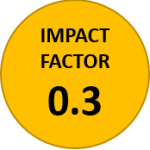Raghib Abusaris and Omar Bayyati
Notes on Number Theory and Discrete Mathematics
Print ISSN 1310–5132, Online ISSN 2367–8275
Volume 24, 2018, Number 2, Pages 117–124
DOI: 10.7546/nntdm.2018.24.2.117-124
Full paper (PDF, 258 Kb)
Details
Authors and affiliations
Raghib Abusaris ![]()
Department of Epidemiology and Biostatistics
College of Public Health and Health Informatics
King Saud bin Abdelaziz University for Health Science
Riyadh, Saudi Arabia
Omar Bayyati
College of Sciences and Health Professions
King Saud bin Abdelaziz University for Health Science
Riyadh, Saudi Arabia
Abstract
In this paper, we investigate the asymptotic behavior of the sequences generated by iterating the process of summing the modular powers of the decimal digits of a number. In particular, we identify all modular happy numbers. A number is called modular happy if the sequence obtained by iterating the process of summing the modular powers of the decimal digits of the number ends with 1.
Keywords
- Happy numbers
- Sequences
- Recurrence relations
- Difference equations
- Modular arithmetic
2010 Mathematics Subject Classification
- 39A11
References
- Atanassov K. (1985) An arithmetic function and some of its applications. Bull. of Number Theory and Related Topics, 9, 18–27.
- Atanassov, K. (2015) A digital arithmetical function and some of its applications. Proceedings of the Jangjeon Mathematical Society, 18 (4), 511–528
- Guy, R. (2004) Unsolved problems in number theory (3rd ed.). Springer, New York.
- Rosen, K. H. (2012) Discrete Mathematics and Its Applications (7th ed.). McGraw-Hill, New York.
- Weisstein, E. W. (2017) Periodic sequence. Available online at http://mathworld.wolfram.com/PeriodicSequence.html. Retrieved March 9, 2017.
Related papers
Cite this paper
Abusaris, R., & Bayyati, O. (2018). On modular happy numbers. Notes on Number Theory and Discrete Mathematics, 24(2), 117-124, DOI: 10.7546/nntdm.2018.24.2.117-124.


